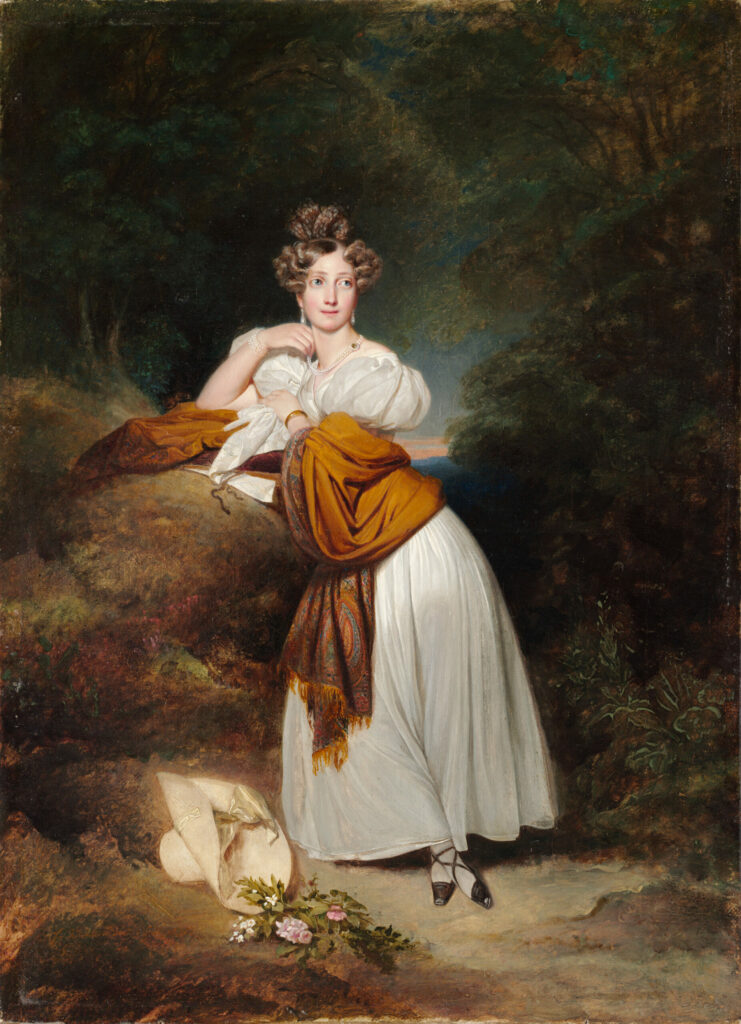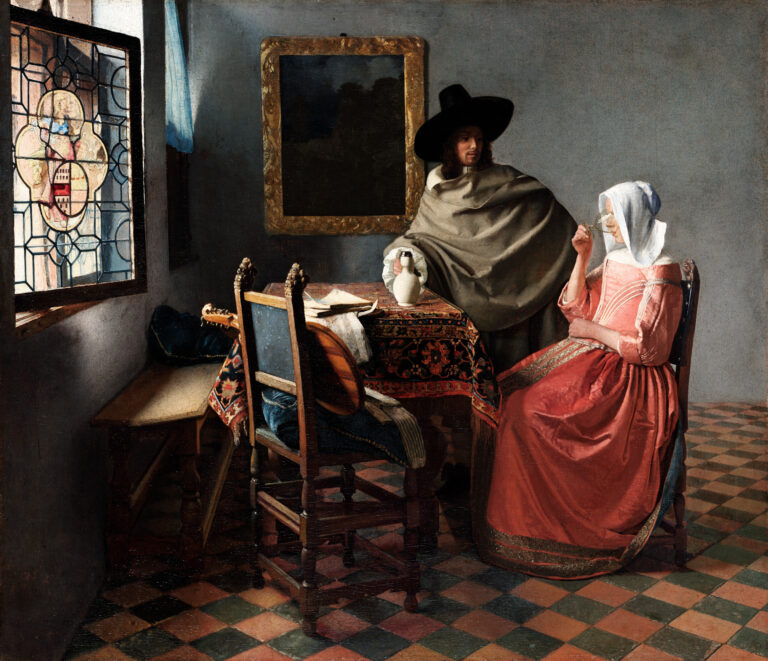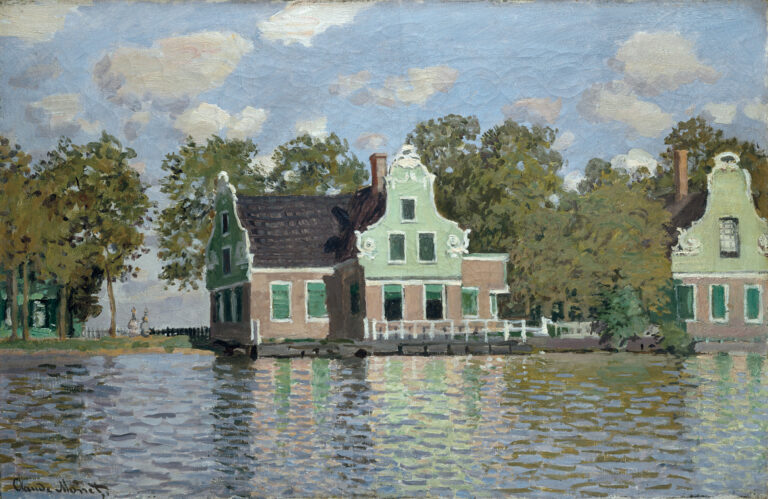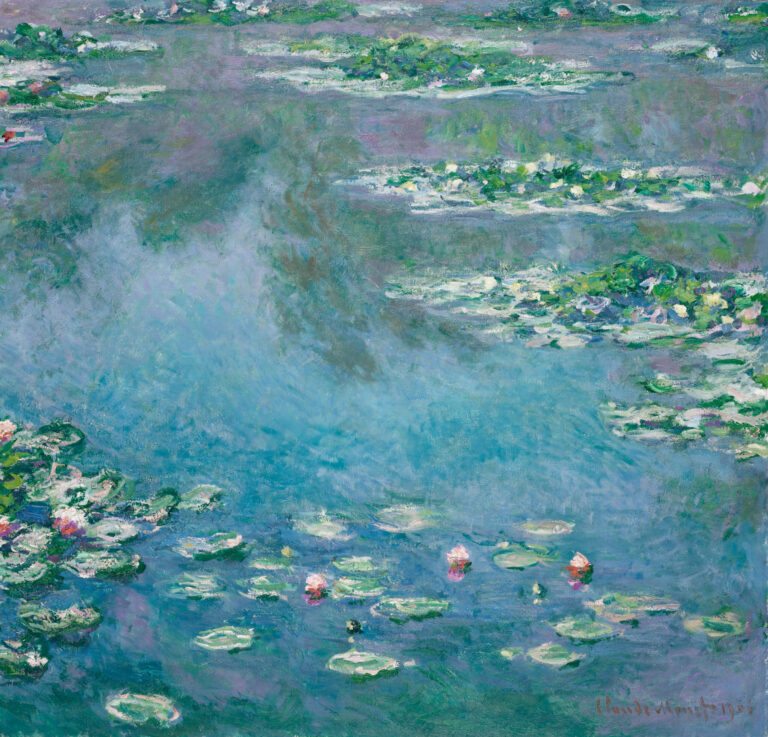
Winterhalter depicts Sophie Guillemette in a natural landscape setting, breaking with the conventions of traditional court portraiture. This 1831 portrait illustrates the aristocratic elegance of the Romantic period.
The Grand Duchess, daughter of King Gustav IV Adolphus of Sweden and wife of Grand Duke Leopold of Baden, poses in a white Empire dress with puffed sleeves, enhanced by an ochre shawl with orientalizing motifs. Her sophisticated hairstyle, adorned with jewels, reflects the refinement of the Baden court. The painter demonstrates perfect mastery of worldly portrait technique: pearlescent flesh tones, silky fabrics, and subtle play of transparencies. The forest setting, rendered in the German landscape tradition, humanizes this official representation. This work precedes Winterhalter’s Parisian career, already revealing his talent for sublimating his aristocratic subjects while maintaining striking psychological truth.
Further Information
- Sophie Guillemette, Grand Duchess of Baden (1801-1865), by Franz Xaver Winterhalter, 1831
- 39.1 x 28.5 cm (15 3/8 x 11 1/4 in.)
- The Cleveland Museum of Art, displayed in Gallery 219, 19th Century European Art
- https://www.clevelandart.org/art/1979.43
Undisputed master of European aristocratic portraiture, Franz Xaver Winterhalter (1805-1873) embodies the worldly art of the 19th century. Born in Menzenschwand in the Black Forest, he trained in graphic arts in Freiburg im Breisgau (1818-1823) under Karl Ludwig Schuler before joining Munich as a lithographer. His apprenticeship in the workshop of Joseph Stieler, portraitist to Louis I of Bavaria and former student of François Gérard, shaped his vocation as a court painter. After a formative Italian sojourn (1832-1834) in Vernet’s circle, he became official painter to the Baden court before his decisive move to Paris (1834). His meteoric career took him from the Tuileries under Louis-Philippe to the court of Napoleon III, ultimately becoming Queen Victoria’s favorite portraitist. He died of typhus in Frankfurt in 1873, leaving behind a considerable body of work.






